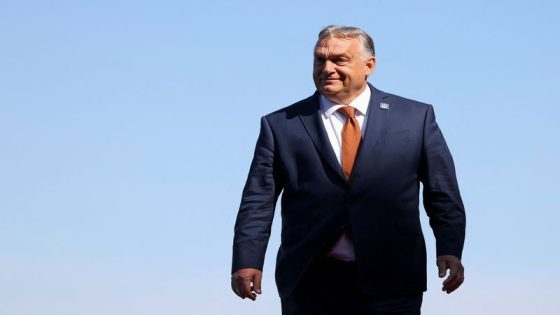BUDAPEST (Reuters) – Hungarian Prime Minister Viktor Orban said on Sunday that a new ministry would take charge of the economy and state finances as he gears up for the nomination of a new central bank governor to succeed his former ally, Gyorgy Matolcsy.
In power since 2010, the veteran nationalist has struggled to revive Hungary’s economy from last year’s recession following a surge in inflation to more than 25% in the first quarter of last year, the highest levels in the European Union.
Orban and Matolcsy, who has led the National Bank of Hungary since 2013, have traded blame over the inflation surge, with the central bank strongly criticising Orban’s caps on prices and interest rates which the bank has said curbed its independence.
Orban said a senior minister would take charge of his economic recovery plan in 2025, a pre-election year, where his Fidesz party will look to shore up support after seeing its worst result in a national or EU vote in nearly two decades at June’s European Parliament election.
Orban said the planned government reshuffle was due to the fact that the position of central bank governor will “unfortunately become vacant on March 1.”
“It is obvious that whoever takes up that post, cannot become this senior minister (in charge of the economy and state finance), to speak frankly,” Orban said in a Facebook post.
“One of them will become senior minister in charge of the economy, while the other will become central bank governor,” said Orban, without naming either of his picks.
Finance Minister Mihaly Varga has been widely tipped to succeed Matolcsy at the helm of the central bank next year, while Economy Minister Marton Nagy, a former central banker, could take charge of public finances under a merged ministry.
A rebound in inflation outside the central bank’s target forced the National Bank of Hungary to pause rate easing at the EU’s highest level of 6.75% last month after 15 consecutive cuts totalling 1,125 basis points.
Orban’s government has repeatedly piled pressure on the bank for even more aggressive rate easing, while Matolcsy has called on Orban several times to change policy course, saying Hungary was falling behind even its central European peers.
Orban also said Hungary should maintain fiscal discipline while drafting a 2025 budget which can lift economic growth to 3% to 5% with large wage hikes, higher tax benefits for families with children and measures to support small businesses.
(Writing by Gergely Szakacs; Editing by Chizu Nomiyama)
Source Agencies




